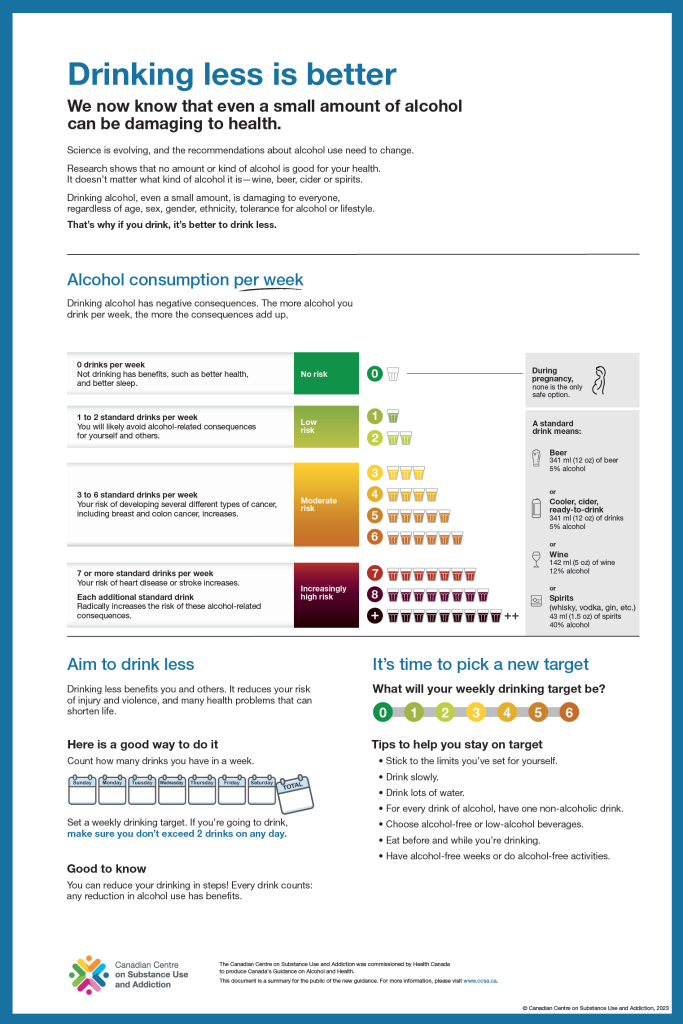Discover the hidden factors influencing your beer intoxication level. From ABV to metabolism, we uncover the secrets behind alcohol consumption.
Table of Contents
Have you ever wondered how many beers it takes to get drunk? The answer to this question is not as straightforward as it may seem. Alcohol intoxication is a complex process influenced by various factors, including alcohol metabolism, individual tolerance levels, and a range of other elements.
The Science Behind Alcohol Metabolism
Alcohol metabolism is a critical process that determines how quickly your body can process and eliminate alcohol. When you consume a beer, it enters your bloodstream and is metabolized by enzymes in your liver. One of the primary enzymes involved in alcohol metabolism is alcohol dehydrogenase, which converts alcohol into acetaldehyde. This compound is further broken down into acetic acid by another enzyme called aldehyde dehydrogenase.
Several factors can affect alcohol metabolism, such as body weight and gender. Generally, individuals with a higher body weight tend to metabolize alcohol more efficiently than those with lower body weight. Additionally, women often have lower levels of alcohol dehydrogenase compared to men, leading to slower alcohol metabolism.
Individual Tolerance Levels
Alcohol tolerance varies among individuals due to genetic factors, age, and drinking history. Some people may have a higher tolerance to alcohol, meaning they can consume more drinks before feeling intoxicated. Factors like genetics play a significant role in determining alcohol tolerance, as some individuals may have genetic variations that affect how their bodies respond to alcohol.
Age is another essential factor when considering alcohol tolerance. Generally, younger individuals tend to have a lower tolerance to alcohol compared to older adults. This is because the body’s ability to metabolize alcohol decreases with age, leading to a more significant impact from alcohol consumption.
Factors Influencing Intoxication
Several factors can influence how intoxicated you feel after consuming alcohol. Food consumption, for example, can play a significant role in regulating alcohol absorption. Eating a meal before drinking can slow down the rate at which alcohol enters your bloodstream, leading to a slower onset of intoxication.

Image courtesy of www.alcoholresearchforum.org via Google Images
Hydration is another crucial factor in determining intoxication levels. Staying hydrated while drinking alcohol can help reduce the risk of dehydration and minimize the effects of alcohol on your body. It’s essential to drink water between alcoholic beverages to maintain proper hydration levels.
Mixing alcohol with other substances, such as medications or illicit drugs, can also have a significant impact on intoxication levels. Combining alcohol with certain medications can amplify the effects of both substances, leading to dangerous interactions and increased intoxication.
Conclusion
As you can see, the question of how many beers it takes to get drunk is not a simple one. Alcohol intoxication is influenced by a variety of factors, including alcohol metabolism, individual tolerance levels, and various other elements. It’s crucial to understand these factors and make informed decisions about alcohol consumption to ensure your safety and well-being.
Remember to drink responsibly, be aware of your own tolerance levels, and take steps to stay safe while consuming alcohol. By understanding the science behind alcohol intoxication, you can make informed choices about how much alcohol to consume and how to enjoy it responsibly.
FAQ
How does body weight affect alcohol intoxication?
Body weight plays a role in alcohol metabolism, with individuals of higher weight typically processing alcohol more efficiently than those with lower weight. Ultimately, body weight can influence how quickly you feel the effects of alcohol.
Can genetics impact alcohol tolerance?
Yes, genetics can influence alcohol tolerance. Some individuals may have genetic variations that affect how their bodies respond to alcohol, leading to differences in tolerance levels among individuals.
Is there a safe amount of alcohol to consume?
Moderation is key when it comes to alcohol consumption. It’s essential to know your limits, be aware of your tolerance levels, and always drink responsibly to avoid adverse effects of alcohol intoxication.
How can hydration affect your intoxication level?
Staying hydrated while consuming alcohol can help reduce the risk of dehydration and lessen the effects of alcohol on your body. Drinking water between alcoholic beverages can help maintain proper hydration levels and potentially minimize intoxication levels.
Generated by Texta.ai Blog Automation


Leave a Reply